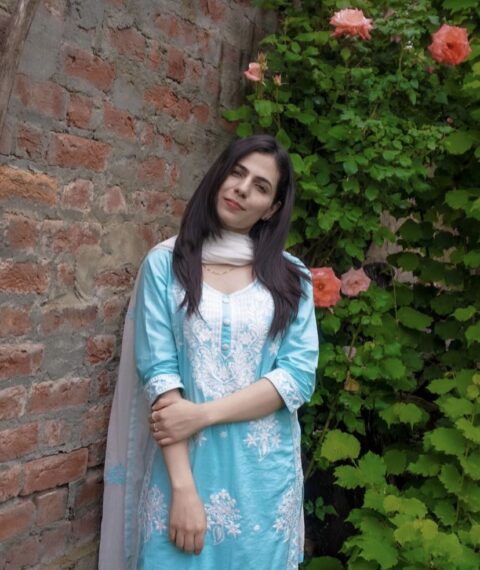In this essay, you offer an up-close view of what we in the West often refer to as the conflict in Kashmir—a phrase that trivializes the extreme suffering that you capture so acutely with the experiences of the people in this brief essay. Is bringing attention to Kashmiri suffering important to you as a writer?
Kashmir has shaped me as a woman and as a writer. Everything that I have witnessed in Kashmir, all the stories I have read or heard about from my family, friends and teachers, are ingrained in my mind. I want to continue telling these stories, to keep talking about Kashmir. It is not something that feels like an obligation. I believe more than anything else, writing about Kashmir helps me deal with my emotions. When you grow up in a conflict zone, there’s so much that you encounter in your everyday life that makes no sense to the people who have not had similar experiences. And for me the only way to deal with this is through writing. However, my stories about Kashmir are not limited to the conflict. My grandmother is a storyteller and I have grown up listening to mythical stories and folktales. I believe we have such a rich, beautiful culture, which should be preserved fiercely and passed on, especially during these difficult and uncertain times.
I’m a prose poetry editor for another journal, and this piece caught my interest for its poeticism—its keen attention to language and rhythm. What’s your reaction to being accused of being a poet? In what ways does the label fit?
I have heard this before, and it is not something that I do consciously. When I sat down to write this, I actually wanted to write an essay. But it turned out to be something closer to prose poetry. I do not write poetry, but I have come to realize that as a fiction writer, I am more driven by poetic impulses, rather than the plot driven and storytelling aspect of writing. I believe poetry gives you space to be more nuanced, and to lean more into the subconscious part of your mind.
A craft question: You lean into your vital subject at the expense of explanation, so as a reader, I had to look up a few things to fully grasp what you were describing: “Azadi,” freedom; kanger and pheran. I was eager to do it—but how much of a partnership can a writer expect from a reader?
I remember a writing workshop from last year where we were discussing the question of the audience for international writers. I realized that I was being inconsistent, sometimes I explicitly defined the Urdu or the Kashmiri words I was using in my stories and sometimes I used transliterations without any explanation of the words. The latter makes more sense to me. There are words and phrases which lose their meaning when translated to English. And when I am writing a story which is set in Kashmir, then using and thus normalizing the usage of Kashmiri words is important to me as a Kashmiri writer. I do not want to otherize my language just to make it more readable for the western readers. I do realize that readers might have different thoughts about this but looking up and learning words in a new language can never be a bad thing.
Can you share a little bit of your personal story—such as when and how you left Kashmir, and whether you intend to return?
I was born in South Kashmir. And for most part of the last decade, I have been living in Pune and Delhi for my education and work. I was an engineer and a journalist in Delhi before I came to the United States for my MFA. I am currently working on a historical novel based in Kashmir. Listening to and reading stories was an important part of my life growing up. I remember back in Kashmir, we had curfews that stretched for months, and during that time, reading was perhaps the only thing that kept me sane. I have known since then that I wanted to write and I feel very grateful that I am here doing just that. And yes, I do intend to return home.
What is the thing you encounter in your day-to-day life that reminds you most keenly of home?
The news coming out of Palestine reminds me of home every single day. It reminds me of my time as a Kashmiri student living in Delhi, when life would go on as usual for my classmates and friends, but with the communication blockade in place, I, and other fellow Kashmiris, would struggle to reach our families back home. It felt exasperating and unfair. I wanted the world to pause and pay attention. What is happening right now in Palestine is beyond anything we have seen before and there’s this feeling of helplessness that comes with watching it on the news every day. Many parallels can be drawn between Kashmir and Palestine, so there’s a strong sense of solidarity that we have for the people of Palestine.



 Included in the price of SmokeLong Fitness:
Included in the price of SmokeLong Fitness: